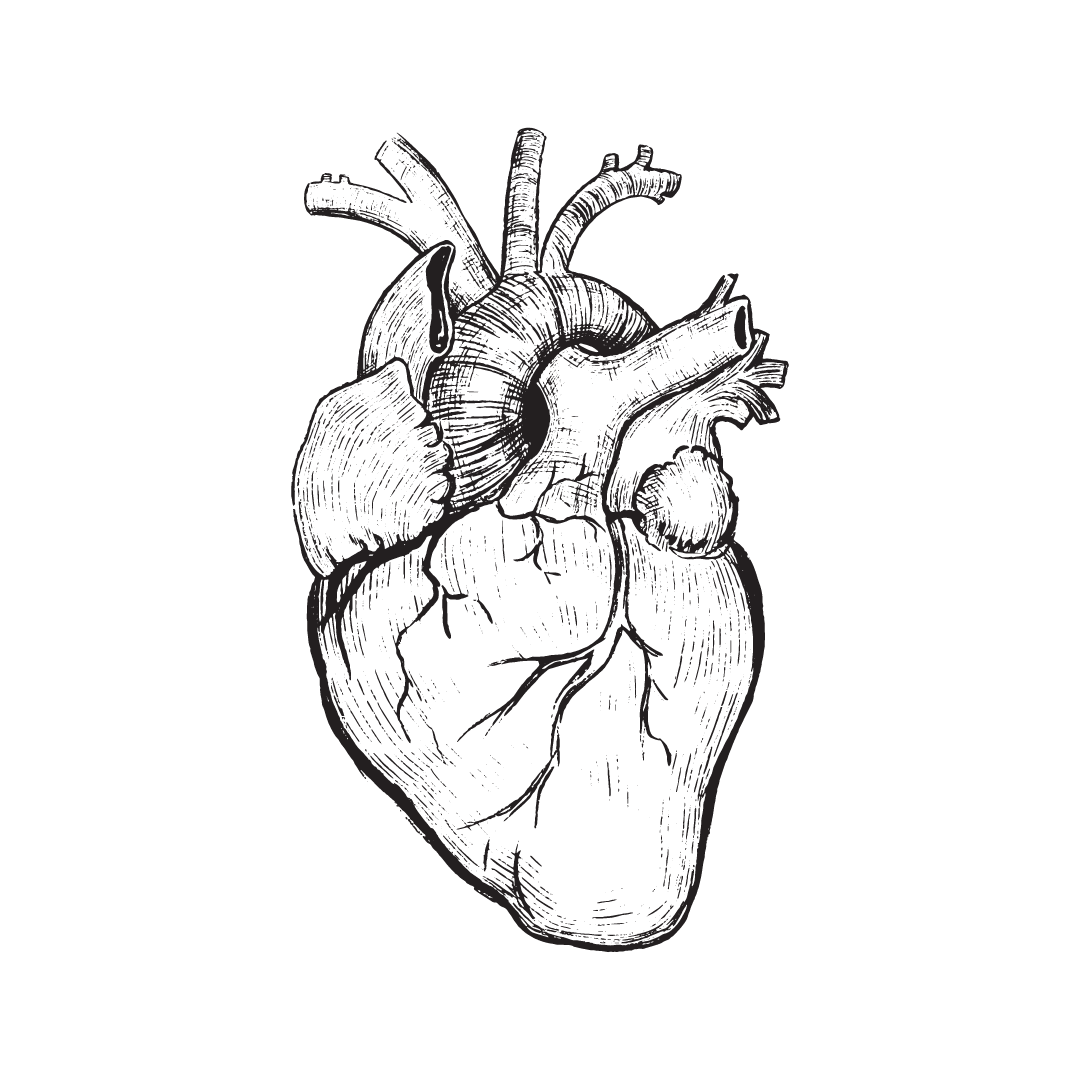Like the engine of a car, the human body is a complicated machine. Now imagine what would happen to your engine if you never changed the oil. The contaminants would build up, the oil would become abrasive, and it wouldn’t be able to continue to do its job. Eventually, parts malfunction, and you might wind up with permanent engine failure. Just as clean oil increases the longevity of your car's engine, clean blood can improve the health and longevity of our bodies.
As children, our intestines act like a new oil filter, allowing nutrients from food into the blood while blocking harmful contaminants. Additionally, the liver, kidneys, spleen, and lymphatic system take part in this critical process of cleansing the blood. However, as we age, our bodies’ filtration systems begin to slow down, and our blood tends to become less and less clean over time. Undigested food particles, toxins, and other debris build up in the bloodstream, causing unwanted strain on the immune system.
Aside from eating right and taking care of all the body's filtration systems, we can also be proactive in cleansing the blood ourselves. Like changing the oil in our cars, we can keep our blood fresh and clean by supplementing with systemic enzymes.
What are Enzymes?
Enzymes are proteins that act as catalysts for the millions of chemical reactions essential for the body's survival and vitality. Nearly every bodily process throughout our lives depends on the proper functioning of several different enzymes, from breaking down food during digestion to building, maintaining, and repairing every cell and tissue throughout the body.
There are two main types of supplemental enzymes. Digestive enzymes are responsible for breaking down food in our digestive tract to absorb and use its nutritional components for nourishment. These enzymes, including lipase, amylase, and protease, are also naturally produced by the pancreas. Unfortunately, production tends to decrease with increasing age. Like their digestive counterparts, systemic enzymes also serve to break down larger (macro) particles into much smaller (micro) nutrients. However, instead of being confined to the digestive tract, systemic enzymes are designed to survive degradation by stomach acid and other digestive processes to be taken up through the intestines and lymphatic system and spread throughout the body via the lymph circulatory systems [1].
The roughly five liters of blood that flow throughout the adult human body are essentially the river of life. Its currents help transport and distribute vital oxygen and nutrients to every cell and dispose of carbon dioxide and other cellular wastes. Just like with any river, if the wastes and toxins from the cells are not adequately cleared out of the bloodstream, often due to a lack of enzymes or sluggish liver function, the trash starts to build up, creating a sort of "dam" of the detoxification pathways vital for good health [1].
Supplementation with systemic enzymes supports healthy levels of cellular debris, circulating immune complexes, decayed or oxidized cells, fibrin, and fatty proteins in the blood [2-24].* Enzymes use a lock and key mechanism to adhere to and break down dead, decaying, or non-living particles, leaving living tissue undisturbed.* If the enzymatic key doesn't fit, which is the case with living tissue, the enzyme leaves it alone. Therefore, unlike some pharmaceutical chemicals that serve a purpose in supporting symptom reduction but are also potentially destructive to living tissues, enzymes naturally only target waste and excessive junk within the body without harming vital organs and tissues in the process.*
Some systemic enzymes function as circulatory purifiers, assisting in the digestion of debris from the cardiovascular system, which softens blood plasma and reduces stress on the arterial walls [20].* In addition, by digesting cellular debris such as fibrin and other proteins, systemic enzymes support normal healthy blood flow and viscosity [4-6].*
Nattokinase, a fibrinolytic enzyme, has been shown to aid in the breakdown of clotting factors such as fibrinogen, factor VII and factor VIII in healthy humans [7].* Bromelain, a pineapple extract, has been identified in animal and human studies to have properties that support normal blood viscosity, such as preventing the aggregation of platelets [8,9].* Serrapeptase is a proteolytic enzyme that helps break down fibrin and other proteins that can factor into adverse blood clotting, helps the body clear fluids related to overactive inflammatory responses, and supports physical comfort by blocking the release of bradykinin [25].* According to doctors who recommend systemic enzymes, there is an indication that their patients' blood shows similarities to the blood profiles of younger patients.*
Are Enzymes Safe?
No serious or adverse side effects have been reported from taking systemic or digestive enzymes.* Clinical studies have shown that even substantial doses of these enzymes are not toxic. If you take blood-thinning medication or are pregnant or nursing, you should consult with your physician before taking any enzyme supplement.
* These statements have not been evaluated by the Food and Drug Administration (FDA). This product is not intended to diagnose, treat, cure or prevent any disease. For all conditions or illnesses, see a healthcare professional for a full evaluation, diagnosis or treatment plan.
References
- Cichoke AJ. The Complete Book of Enzyme Therapy. New York, NY: Avery; 1999.
- Rachman B. Unique Features and Application of Non-Animal Derived Enzymes. Clin Nutr Insights. 1997;5(10).
- Cutler E. Why Enzymes Are Essential to a Healthy Immune System. Townsend Lettr. 275.
- Pais E, Alexy T, Holsworth RE Jr, Meise HJ. Effects of nattokinase, a pro-fibrinolytic enzyme, on red blood cell aggregation and whole blood viscosity. Clin Hemorheol Microcirc. 2006;35:139-42.
- Ito H, Suzuki T. Effect of oral administration of nattokinase extract on blood mobility. Society Analyti Bio-Sci. 2002;25(4).
- Ernst E, Matrai A. Oral Therapy with proteolytic enzymes for modifying blood rheology. Klin Wschr. 1987;65:994.
- Hsia CH, Shen MC, Lin JS, et al. Nattokinase decreases plasma levels of fibrinogen, factor VII, and factor VIII in human subjects. Nutr Res. 2009;29(3):190-6.
- Juhasz B, Thirunavukkarasu M, Pant R, et al. Bromelain induces cardioprotection against ischemia-reperfusion injury through Akt/FOXO pathway in rat myocardium. Am J Physiol Heart Circ Physiol. 2008;294(3):H1365-70.
- Heinicke RM, van der Wal L, Yokoyama M. Effect of bromelain on human platelet aggregation. Experientia. 1972;28:844-5.
- Olivecrona G, Olivecrona T. Triglyceride lipases and atherosclerosis. Curr Opin Lipidol. 2010;21(5):409-15.
- McPherson JC, Moore WT, Pope JL, Tidwell HC. Effect of Lipase Ingestion on Blood Lipid Levels. Proc Soc Exp Biol Med. 1964;115:514-7.
- Wu D-J, Lin C-S, Lee M-Y. Lipid-Lowering Effect of Nattokinase in Patients with Primary Hypercholesterolemia. Acta Cardiol Sin. 2009;25:26-30.
- Iwai K, Nakaya N, Kawasaki Y, et al. Antioxidant functions of natto, a kind of fermented soybean: effect on LDL oxidation and lipid metabolism in cholesterol-fed rats. J Agric Food Chem. 2002;50:3597-3601.
- Yokota T, Hattori T, Ohishi H, et al. The effect of antioxidant-containing fraction from fermented soybean on atherosclerosis development in cholesterol-fed rabbits. Lebensm-Wiss Technol. 1996;29:751-5.
- Akhtar MS, Ramzan A, Ali A, Ahmad M. Effect of Amla fruit (Emblica officinalis Gaertn.) on blood glucose and lipid profile of normal subjects and type 2 diabetic patients. Int J Food Sci Nutr. 2011;62(6):609-16.
- Antony B, Merina B, Sheeba V. Amlamax in the management of dyslipidemia in humans. Indian J Pharm Sci. 2008;70(4):504-7.
- Jacob A, Pandey M, Kapoor S, Saroja R. Effect of the Indian gooseberry (amla) on serum cholesterol levels in men aged 35-55 years. Eur J Clin Nutr. 1988;42(11):939-44.
- Anila L, Vijayalakshmi NR. Flavonoids from Emblica officinalis and Mangifera indica-effectiveness for dyslipidemia. J Ethnopharmacol. 2002;79(1):81-7.
- Kunze R, Ransberger K, et al. Humoral immunomodulatory capacity of proteases in immune complex decomposition and formation. First International symposium on combination therapies, Washington, DC; 1991.
- Jager H. Hydrolytic Enzymes in the therapy of HIV disease. Zeitschr Allgemeinmed. 1990;19:160.
- Bartsch W. The treatment of herpes zoster using proteolytic enzymes. Der Informierte Arzt. 1974;2:424-9.
- Scheef W. Enzymtherapie, Lehrbruch der Naturheilver fahren. Hippokrates Verlag Bd. 1987;11(Suppl):95-103.
- Billigmann P. Enzyme therapy—an alternative in treatment of herpes zoster. A controlled study of 192 patients [translated from German]. Fortschr Med. 1995;113:43-8.
- Kleine MW, Stauder GM, Beese EW. The intestinal absorption of orally administered hydrolytic enzymes and their effects in the treatment of acute herpes zoster as compared with those of oral acyclovir therapy. Phytomedicine. 1995;2:7-15.
- Shilpa PJ, Nilesh HP, Tarang GS, Maganlal VG, Hiren RT, Bharat KS. Comparison of anti-inflammatory activity of serratiopeptidase and diclofenac in albino rats. J Pharmacol Pharmacother. 2010;1:116-117



